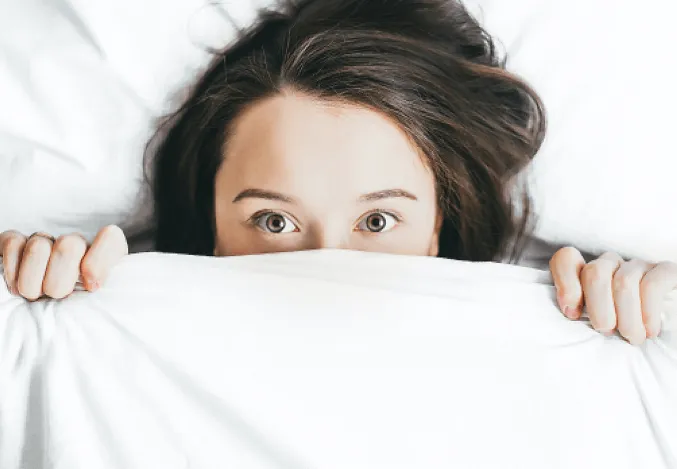Rosacea Treatments Online
Rosacea is a common skin condition that causes redness, visible blood vessels, and sometimes small pus-filled bumps, usually on the face. Although there’s no cure, effective treatments can significantly reduce symptoms and improve skin appearance. At Click Pharmacy, you can order prescription rosacea treatments online with confidence, reviewed by UK-registered prescribers and delivered discreetly to your door.
To get started, complete a short online consultation. Once approved, your treatment will be sent quickly and securely, with next-day delivery options available.

Available Rosacea Treatments
At Click Pharmacy, we offer a range of licensed treatments to help manage rosacea symptoms. After completing an asessement our prescribers will advise on the most suitable treatment for you based on your symptoms and medical history.
What is Rosacea?
Rosacea is a long-term skin condition that mainly affects the cheeks, nose, chin, and forehead. It causes redness, visible blood vessels, and sometimes acne-like bumps. Over time, the redness can become more persistent and, in some cases, lead to thickened skin.
Rosacea is sometimes mistaken for acne, but it is a different condition. It is most common in adults over 30, particularly women with fair skin, though anyone can develop it. While there is no permanent cure, treatments can help manage symptoms and prevent flare-ups.
Types of Rosacea
There are four main types of rosacea, and some people may experience more than one:
-
Erythematotelangiectatic rosacea – the most common type, causing flushing, redness, and visible blood vessels.
-
Papulopustular rosacea – sometimes called “acne rosacea,” this type leads to red bumps and pus-filled spots.
-
Phymatous rosacea – causes thickened, bumpy skin, most often affecting the nose (rhinophyma).
-
Ocular rosacea – affects the eyes, causing them to look watery or bloodshot, and may lead to irritation or swelling.
Rosacea can occasionally affect other areas such as the chest, neck, and back, but it is most often seen on the face.
Causes of Rosacea
The exact cause of rosacea is still unknown, but research suggests a combination of genetic, immune, and environmental factors. Possible contributors include:
-
Overactive blood vessels and nerve signals
-
An overreaction of the immune system
-
High numbers of the skin mite Demodex
-
A gut bacteria called H. pylori that may affect hormone levels
-
Family history of rosacea
While rosacea is not contagious, some people may be more genetically predisposed to it.
Triggers & Risk Factors
Even though rosacea cannot be prevented, flare-ups can be managed by avoiding common triggers. These include:
-
Sunlight and wind exposure
-
Spicy foods and hot drinks
-
Alcohol, especially red wine
-
Intense exercise
-
Hot showers or baths
-
Harsh skincare products or makeup
-
Medications that widen blood vessels
You may also be more likely to develop rosacea if you:
-
Are over 30 years old
-
Have fair or sensitive skin
-
Are female
-
Smoke
-
Have a family history of rosacea
Symptoms of Rosacea
Common signs and symptoms include:
-
Persistent facial redness (flushing or blushing)
-
Visible small blood vessels (telangiectasia)
-
Red, swollen bumps or spots resembling acne
-
Burning, stinging, or itching skin
-
Dry, rough, or sensitive skin
-
Eye irritation (watery, burning, swollen eyes – ocular rosacea)
-
Thickened skin, especially on the nose (rhinophyma, more common in men)
If you notice sudden changes in your skin or eye health, it’s important to see a healthcare professional for assessment.
How is Rosacea Diagnosed?
Diagnosis is usually made during a physical examination by a GP or dermatologist. They will:
-
Review your medical and family history
-
Assess your skin symptoms
-
Ask about possible triggers
There is no specific test for rosacea, but your doctor may rule out other skin conditions such as acne, eczema, or lupus.
Treatment Options for Rosacea
While rosacea cannot be cured, there are effective treatments available to reduce symptoms:
-
Skincare products – gentle cleansers, moisturisers, and sun protection to help calm the skin.
-
Prescription topical treatments – creams and gels such as Finacea, Soolantra, Mirvaso, and Metrogel to reduce redness, bumps, and inflammation.
-
Oral medicines – such as Efracea (a low-dose antibiotic capsule) to target inflammation and flare-ups.
-
In-clinic treatments – including laser therapy, dermabrasion, or electrocautery to reduce visible blood vessels.
-
Lifestyle changes – avoiding triggers, limiting alcohol, and protecting skin from sunlight.
Your doctor or prescriber will recommend a treatment plan tailored to your symptoms.
How to Buy Rosacea Treatment Online
Ordering rosacea treatment from Click Pharmacy is simple:
-
Complete a quick online consultation – answer some questions about your skin and medical history.
-
Reviewed by a UK prescriber – one of our clinicians will confirm if the treatment is right for you.
-
Fast, discreet delivery – if approved, your treatment will be delivered in plain packaging, with next-day options available.
FAQs about Rosacea
Can I buy rosacea cream over the counter?
Yes, some non-prescription creams (such as Dermalex) are available. Prescription creams like Finacea or Soolantra are more effective and may be recommended depending on your symptoms.
How long does it take to treat rosacea?
Rosacea is a long-term condition. With consistent treatment, symptoms usually improve within a few weeks to months, but flare-ups may still occur.
Does alcohol cause rosacea?
Alcohol, especially red wine, can trigger or worsen rosacea flare-ups. It’s best to limit or avoid alcohol if you have rosacea.
What foods trigger rosacea?
Spicy foods, hot drinks, dairy, chocolate, and citrus fruits are common triggers. Keeping a food diary may help identify your personal triggers.
Is rosacea the same as acne?
No. While rosacea can cause red bumps similar to acne, it is a separate condition and requires different treatment.
Is rosacea a sign of poor hygiene?
No. Rosacea is not linked to hygiene and cannot be caught or spread. It is a medical condition that requires treatment and lifestyle management.
How to order
Order your Rosacea medication in a few clicks. Ordering from us is easy, fast and discreet.
Free Online Assessment
Answer a few simple questions about your health.
Choose Your Medication
Our prescribers will review and guide you to the right treatment.
Fast Delivery
Once approved, your treatment is dispatched discreet packaging by next day delivery.
